Capital City of Vietnam
Whatever preconceived notions you may have about Hanoi, you are bound to be both surprised and delighted by the capital city of Vietnam. With numerous lakes, temples and historic sites to explore, adventurous travelers will find plenty here to keep them occupied for several days. French and Vietnamese cuisine abound and the reasonable price of dining in Hanoi is certain to please the value minded traveler. While experiencing this beautiful city with all four senses, you will also have an opportunity to meet a few of the more than six million friendly inhabitants who will go out of their way to help you. And let’s not forget that Hanoi is the gateway to Halong Bay, a UNESCO World Heritage Site that you will not want to miss during your visit to Vietnam.
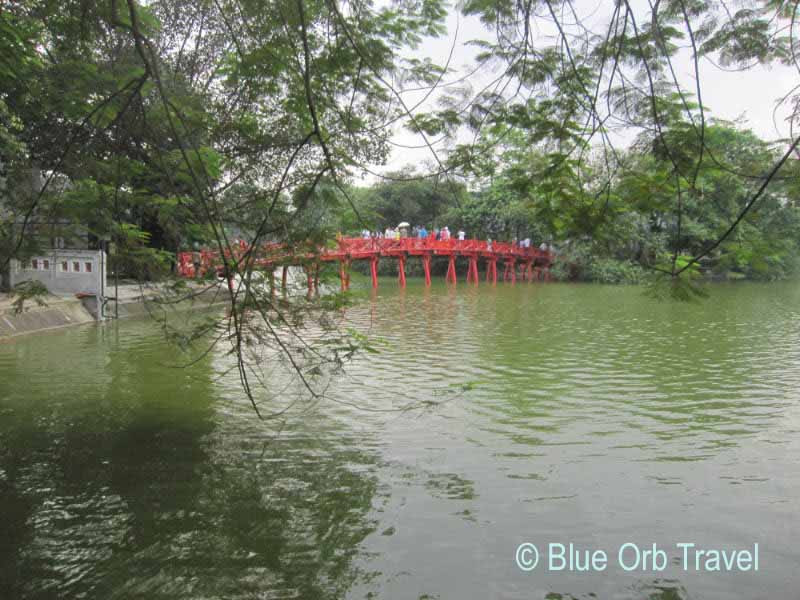
Hoan Kiem Lake
My walking tour of Hanoi began after a wonderful breakfast at the Hoa Binh Hotel where I was staying. Hoan Kiem Lake or Sword Lake is just a short walk from the hotel near the historic Old Quarter. The lake is one of the major attractions in Hanoi and a great place to mingle with the locals.
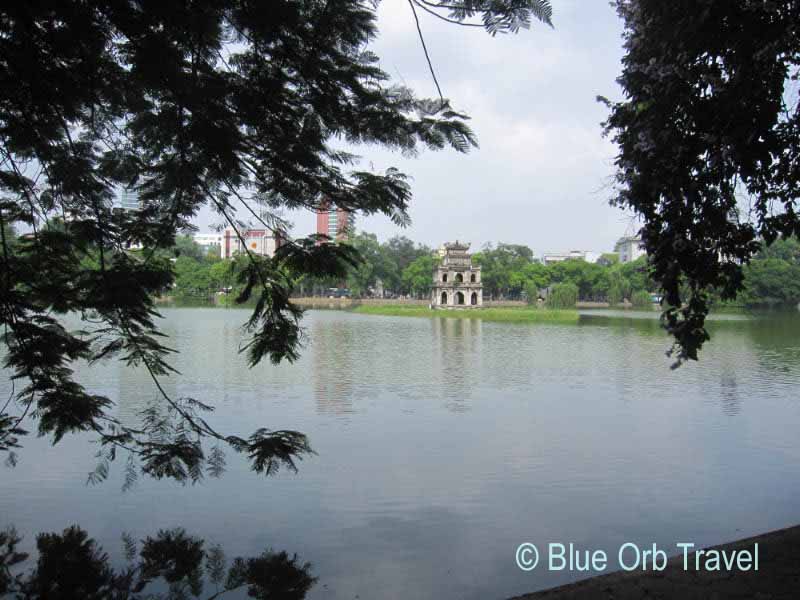
The Hanoi Hilton
The Hanoi Railway Station is also close to the hotel and just a few blocks from there is the infamous Hoa Lo Prison or Hanoi Hilton. Built by the French in the 1880s, the prison name translates roughly to ‘Hell’s hole’. For about $1 you can tour the prison complex and see where American POWs were held during the Vietnam War.
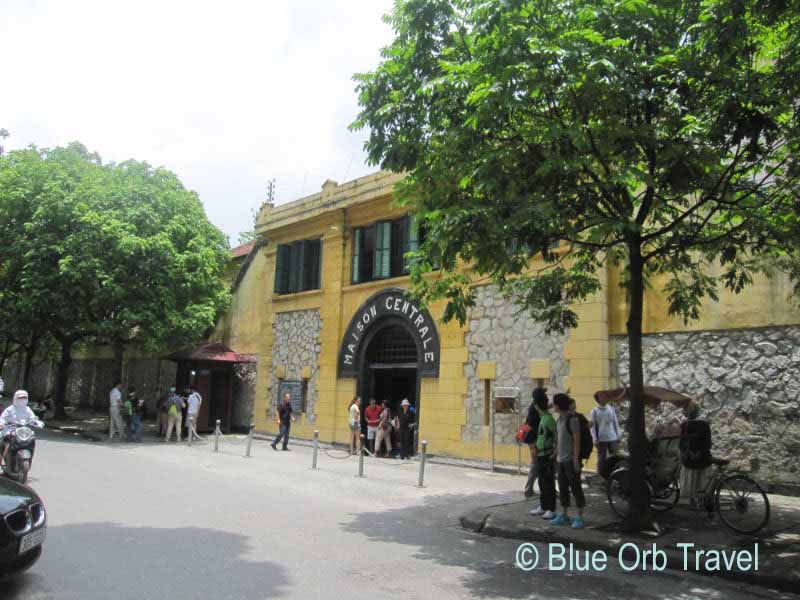
The Presidential Palace
A bit farther west you will come to a clustering of important sites, including the Presidential Palace, the Ho Chi Minh Mausoleum, the One Pillar Pagoda and the B-52 crash site. Built for the French Governor-General of Indochina, the Presidential Palace typifies European architecture of the early 1900s. When Vietnam achieved its independence from France in 1954, Ho Chi Minh lived in a simple stilt house on the grounds, rather than moving into the nearby palace.
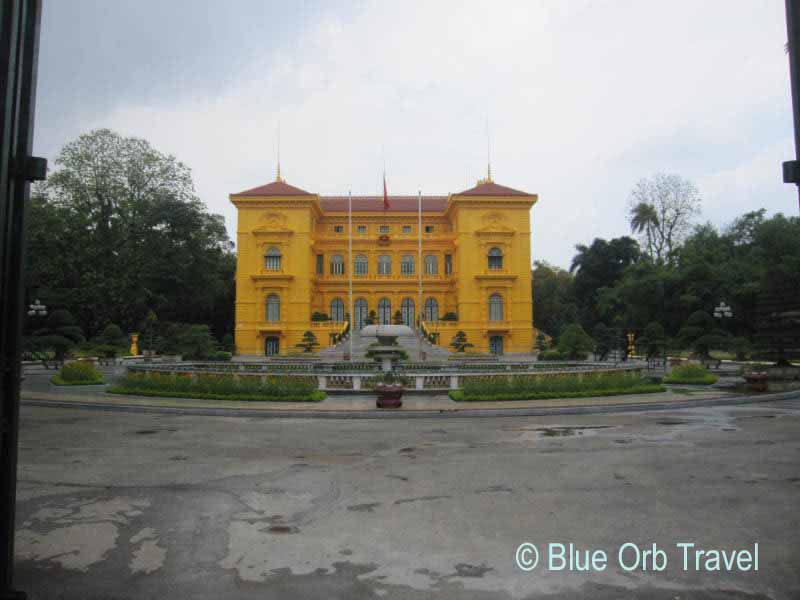
The Ho Chi MinhMausoleum
Adjacent to the Presidential Palace is the Ho Chi Minh Mausoleum, which is set back on a huge open area known as Ba Dinh Square. The square is reminiscent of Tiananmen Square in Beijing, but is nearly deserted in comparison. The structure of the tomb is based on Lenin’s Mausoleum in Moscow, but much larger. It is only open for visitors from 8 to 11 AM a few days a week.
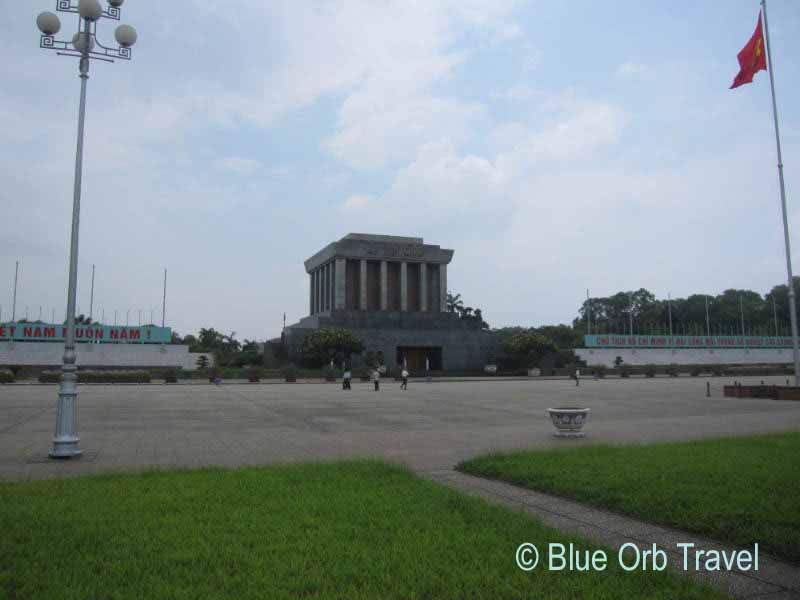
The One Pillar Pagoda
In the same vicinity as the Ho Chi Minh Mausoleum you will find the One Pillar Pagoda. This Buddhist temple built in 1049 is one of the most frequently visitied sites in Hanoi. Symbolizing a lotus blossom rising from a muddy pond, this temple is a perfect place for reflection and peaceful meditation.
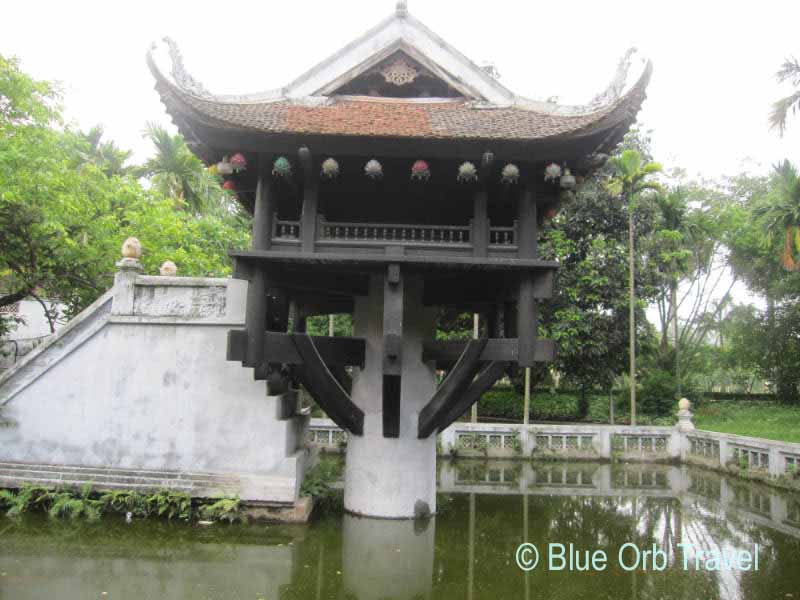
The B-52 Crash Site
In 1972, towards the end of the Vietnam War, an American B-52 bomber was shot down over Hanoi. It crashed into Hun Tiep Lake, where it has remained for more than 40 years. The wreckage can still be seen protruding from a small moss covered pond in the midst of the urban area west of Ba Dinh Square. Be prepared for a difficult time locating this iconic symbol of the war, but then wandering through the back alleys and asking the locals for directions is all part of the experience…and getting a glimpse of the historic sites, beautiful scenery and friendly people of Hanoi, Vietnam is a delightful experience that should be on every traveler’s bucket list.
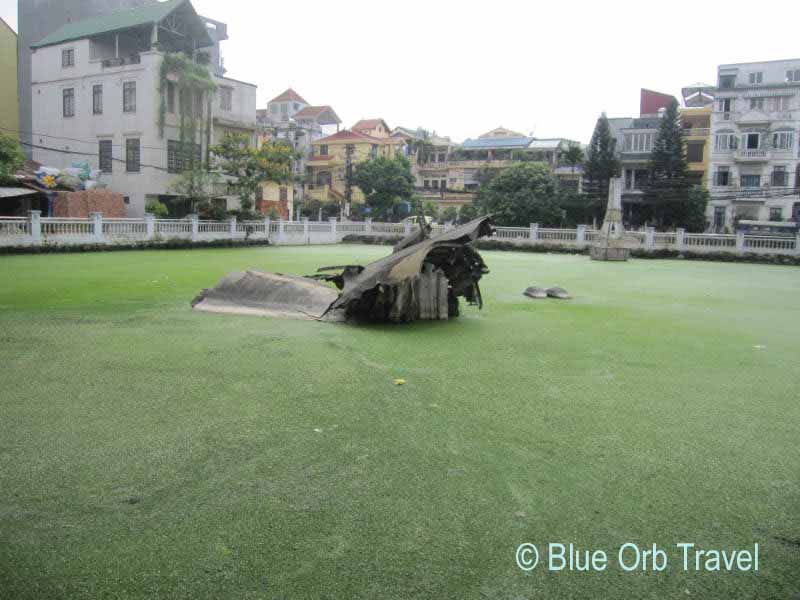

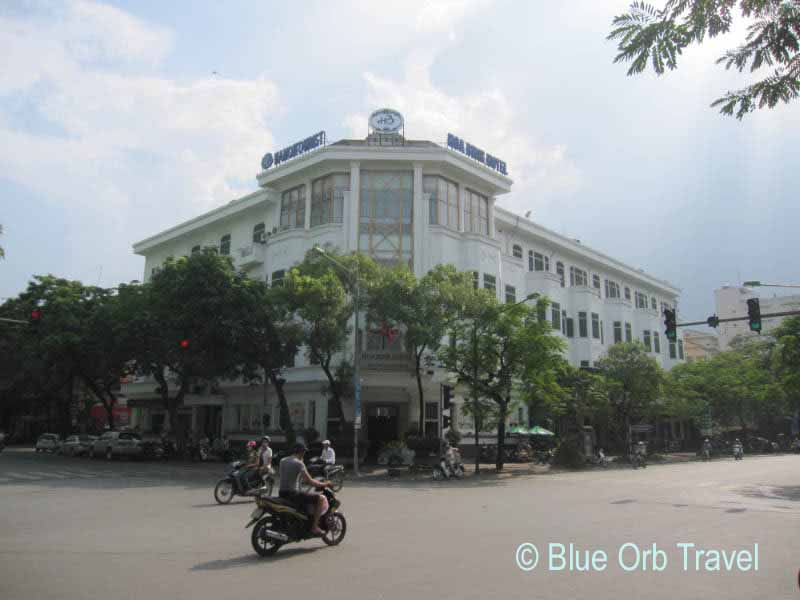
Pingback: The Hoa Binh Hotel, Hanoi, Vietnam | Blue Orb Travel